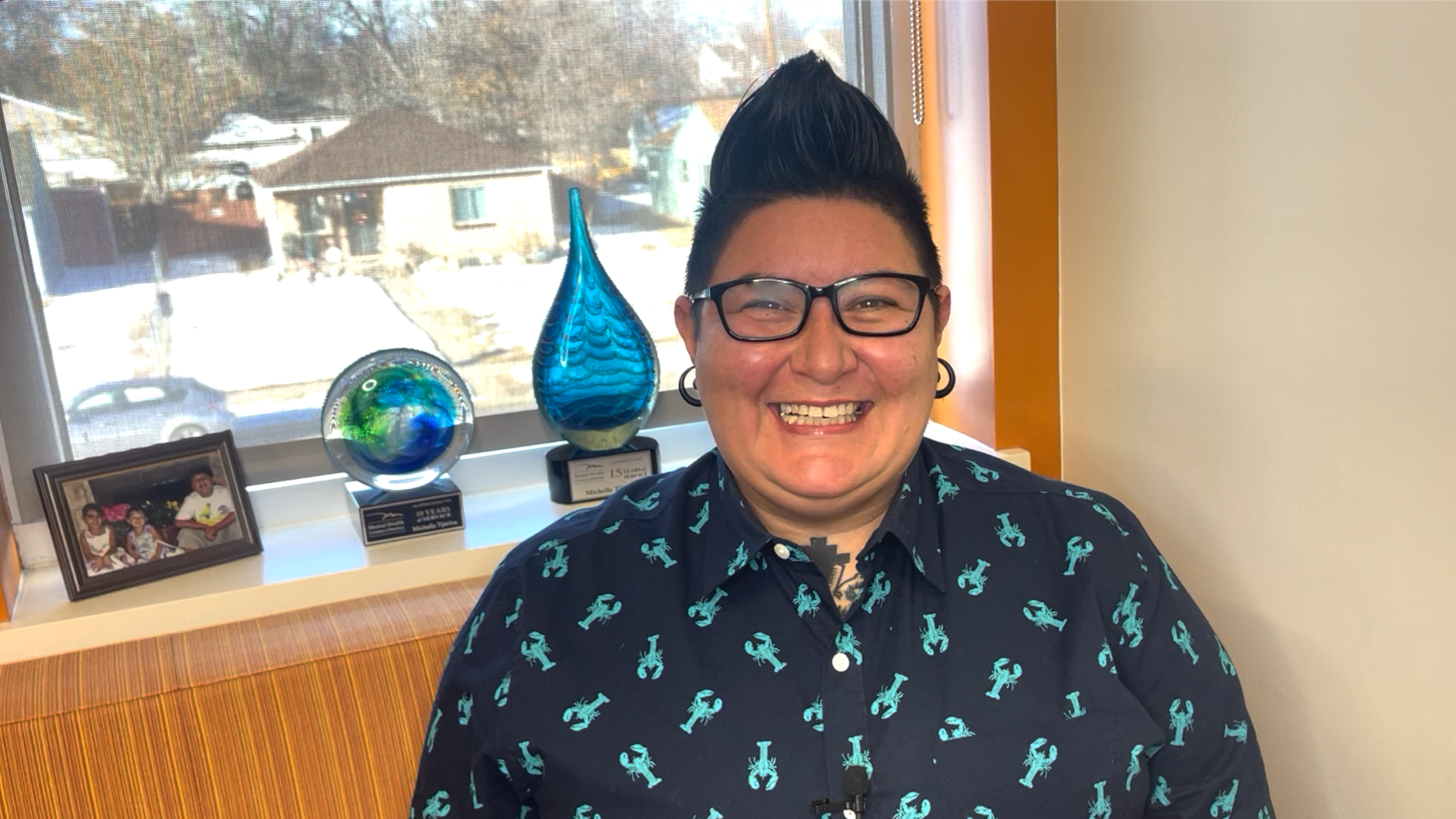View this post in ASL in a new tab, or scroll to the end of the article to watch the video on screen.
Can you describe your position within WellPower and how you got to where you are?
I am currently the community coordinator for Child & Family Services at WellPower. I’ve been here a long time – 17 years. I started as the case manager for Child & Family Services – the only case manager at that time. Then I was promoted to the community coordinator position for our Voz y Corazón suicide prevention program.
I was asked to expand the program, so I created trainings on prevention and education around mental health disorders, well-being – really anything that would help the community understand how to better help themselves, how to be well, and how we can be a resource within the community that’s stable, honest and loyal to the idea that we can help people. I still run Voz y Corazón and am also part of the Healthy Living team at Dahlia Campus.
What do you love most about your work?
I love building community with young people. Young people and their families are such an integral part of our community. With my position, it’s all about structuring and creating this space for young people to be able to build their self-esteem, to make friends, to understand and learn about well-being and to really learn how to be proud of themselves in what they accomplish.
I’m passionate about the suicide prevention training we provide. I love the idea of young people serving and helping each other, because we know that young people are going to go to other young people first, even if they have a trusted adult.
I also love our big Voz y Corazón art show that we have every year. The young people provide one or two pieces that they’ve created over the year to exhibit. We have food and music, and we have the young people bring whoever they consider their family and friends to come and show off their art. It’s a day for them to be superstars and feel what it’s like to be in community. That’s something that I really love about my job. Building community is the bottom line.
What impact have you seen WellPower have on our community?
When I first started, we had two clinics where everybody had to be a Jack-of-all-trades. We had to work as a team, but it was a small team. And over the years, we’ve expanded. “Growth” is not a sufficient word for what has happened within WellPower over the years.
Now, we have expanded clinical services, expanded prevention and education services. We have a family resource center. We have Emerson St., which is for young people and teens to have a space to go and do therapy, or to do positive activities. We now have therapy for parents of toddlers and babies. The list goes on and on. We’ve put ourselves in a position of being an integral part of the community and serving the community at every life stage. We’re there to support the community in the ways that are important and impactful for them.
Can you tell us about a particularly impactful moment in your career?
As the only case manager at the time, I advocated for families that really needed basic services, food, clothing and toys for their kids – things that they couldn’t afford.
My supervisor and I got the request for a resource center pushed to Executive Management, and they decided that this something that’s important for our families to get better. You can’t focus on therapy, you can’t focus on parenting if you can’t even put food on the table, if you can’t pay your electric bill, things of this nature. So, we created A New Day Family Resource Center. I’m so proud of creating and naming this program.
What does compassion mean to you in the context of your work?
Compassion, to me, is a concern and an understanding of other people’s struggles. Within our work, we meet people, meet families, meet young people exactly where they are, and help to bring well-being into their lives. Whether that’s therapy, programs within the community, or something like the farm at Dahlia Campus. There are so many different ways that we can meet people where they are in their struggles.
The compassion that we have as an organization is what turns into action, and that action supports families and the community overall. And that’s what we’re here to do — express that compassion through action.


